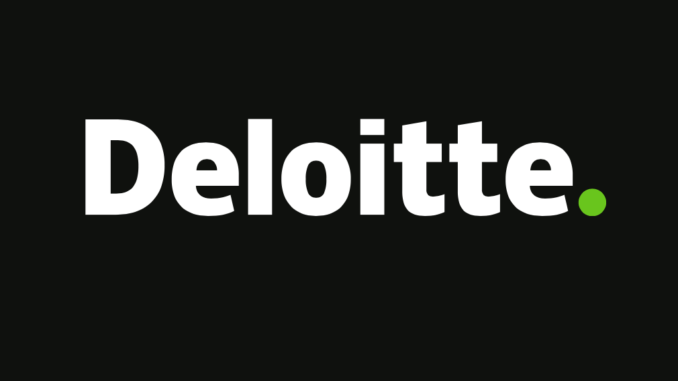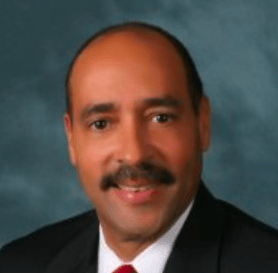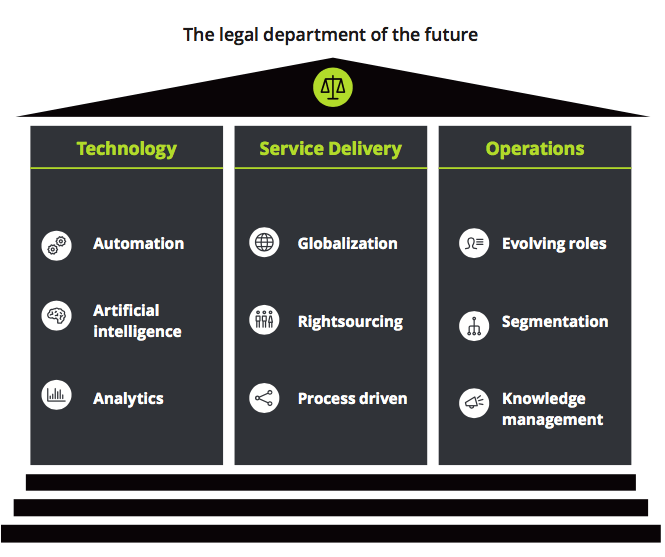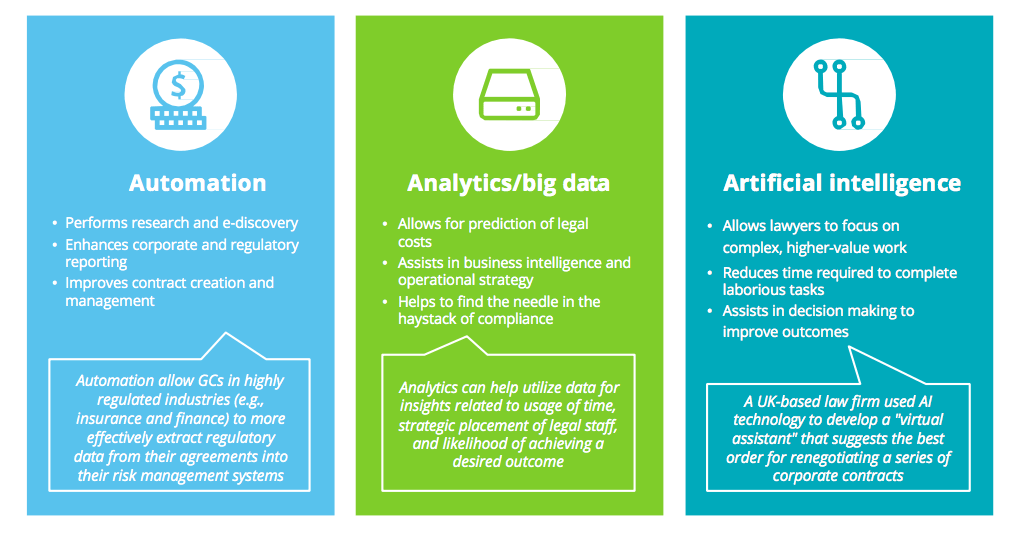
Artificial Lawyer caught up with Tony Reid, a principal at global professional services firm, Deloitte, to find out more about its evolving approach to legal AI technology and its ambitions.
Reid starts off by noting that Deloitte has been steadily moving in the direction of legal AI tech for some time. The movement began with exploring e-discovery software in the hope of cutting the cost of litigation review for its clients. But, soon enough the business started to think more broadly about what it could do with a growing number of legal AI tools in the market.

‘We wanted to look at other ways that we could use these tools for our clients,’ says Reid, who is based in Florida. ‘And we started to get traction.’
In May this year Deloitte published a statement of intent in the shape of a report called ‘The Legal Department of the Future’, which set out a variety of issues general counsel (GCs) would have to face. A significant part of the report then focuses on AI, data analysis and automation.
Since then, things have started to move quickly, says Reid, who adds: ‘In the last six months we have come a fair bit. We talk regularly to our clients about it [AI] and GCs want to discuss this.’
However, he notes – as others in this sector have – that getting GCs to take note of AI and getting them to really learn about what AI can do and then actually implement AI systems internally are very different things.
‘A lot of GCs are very slow to adopt AI. Doing something is sometimes a challenge,’ Reid notes.
He adds that they start off with showing the benefits of the more advanced e-discovery technology, then say: ‘You see, it’s not a leap to do other activities [using AI].’
Reid says that the strategy is to focus on helping their clients push their internal lawyers ‘up the value chain’ and away from ‘rudimentary’ work.
He notes one very large Deloitte client, which has a team of lawyers that spend sometimes up to 80% of their time reviewing NDAs.
‘Why do that? 99% of the time the terms of an NDA are similar. You don’t need humans to do that,’ Reid says.
He adds that when examples like this are shown to GCs then ‘the light begins to come on’ and they get it.
The Plan
Deloitte has now developed a three-part approach to developing and expanding its legal AI services, not just in the US but globally.
The first way is to act as an adviser and help the inhouse legal client redesign their processes and to then select the right AI and automation tech they need to meet the goals of the redesign.
Reid adds that when they do this, they partner with well known legal AI companies such as Kira Systems and Seal Software and ‘we PMO the tech’, i.e. they help to project manage its utilisation.
The second approach is to offer a full service to the clients. ‘We utilise the AI tech that is there and where we’ve also built additional tools ourselves. We then become the operator of the tech. It’s a managed service,’ says Reid.
And the third approach is to host the tech and let the client use it. Reid says an example may be tech applications based on Kira, which they then licence to the clients. However, he notes, on the third example they have not done much of this yet.
A Growing Opportunity
Reid explains that what started out as just looking at advanced litigation review has widened now into multiple AI applications that can be used for transactional work, or day to day matters, such as compliance.

For example, they’ve created a compliance tool that tracks all relevant regulatory change and updates clients that may have a need for that, including making sure they don’t miss any reporting deadlines.
‘We built a bot to help with this so that clients can stay ahead of the curve,’ he explains, adding that this again is sold as a managed service.
As Deloitte explores what can be done with automation and AI tech they are seeing more potential clients that could use their capabilities, or those of the AI companies they’re working with.
Reid understandably doesn’t want to give client details, but will say that they have more than 20 clients globally now for legal AI services. That said, this is a fraction of Deloitte’s worldwide client base and underlines how much further this segment of the business could expand, given that nearly every one of its larger corporate and financial services clients may have a use case for legal AI services.
He also notes that at present the majority of the GC clients working with Deloitte’s legal AI services are in the US, but that there is a strong working relationship with the UK team also.
Reid also observes that they are not at the stage that PwC has reached with its quite large and developed NewLaw team and its AI-driven LPO capability (see story), but they may not be that far behind either.
‘It’s the future for us,’ says Reid of tapping AI tech for Deloitte’s inhouse legal clients.
By way of showing Deloitte’s commitment, he adds that they now have a ‘lab’ that tests out all the new legal AI products that come to market, operating a sandbox system so that they can stay at the cutting edge of what’s out there.
Who Will Come Out on Top?
Artificial Lawyer has to ask before we end the interview: which is best placed to make use of legal AI – the client, the law firm, the Big Four, traditional LPOs, ALSPs, or something else?
Reid agrees the picture is not totally clear yet, and that things ‘will be diverse for a while’. But he says that the reality is that giant, global professional services businesses such as Deloitte and PwC are very capable of providing legal AI tech solutions to their clients.
In which case, who will win out here? Right now there is everything to play for. However, one thing is clear: getting the GCs to see your version of how best to provide AI services as the best model is clearly going to be one of the key strategic battles for the legal sector over the coming years.

1 Trackback / Pingback
Comments are closed.